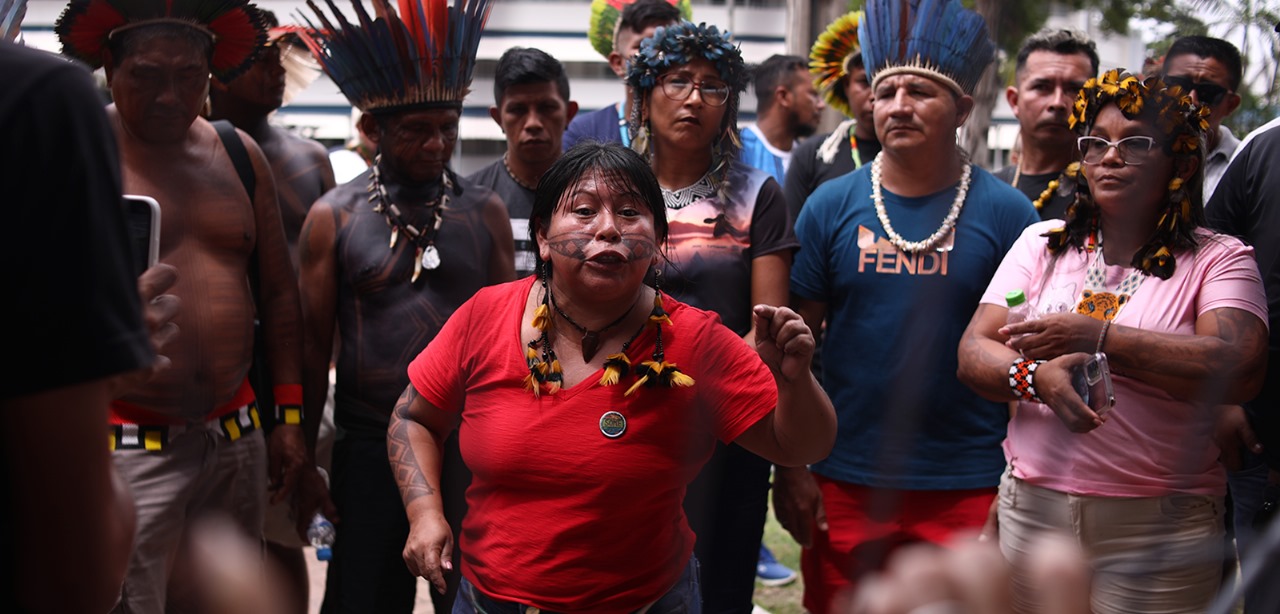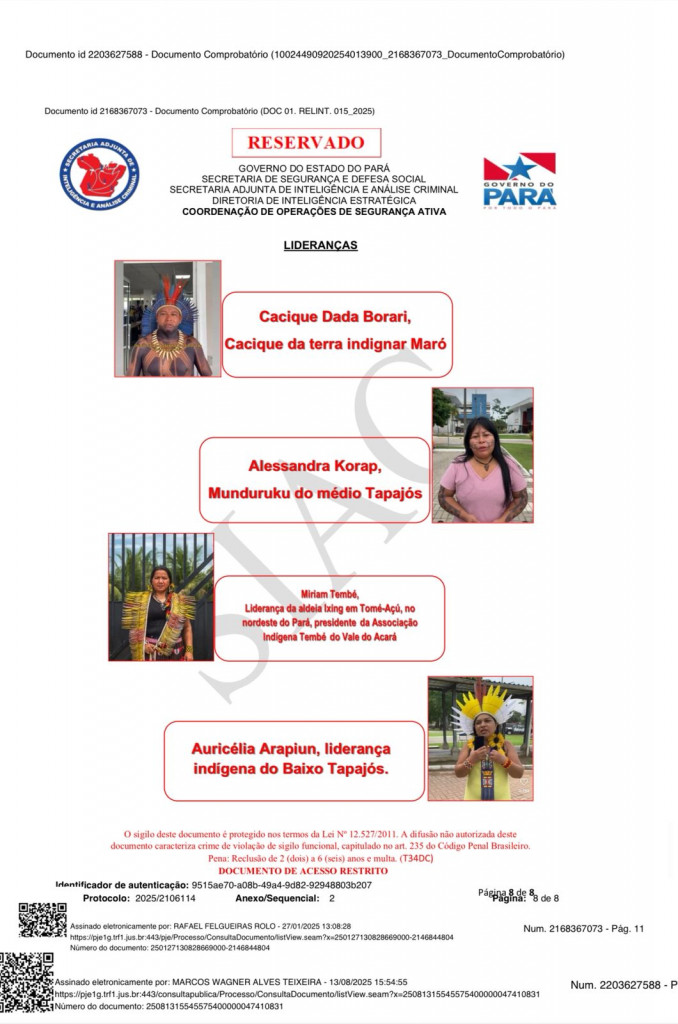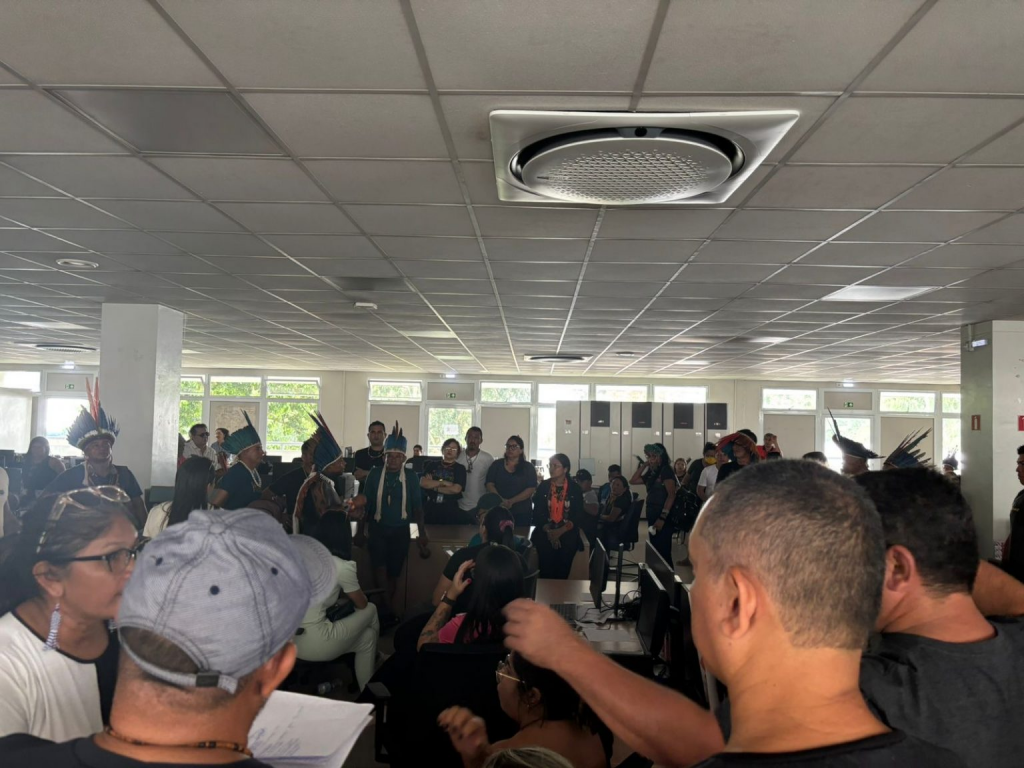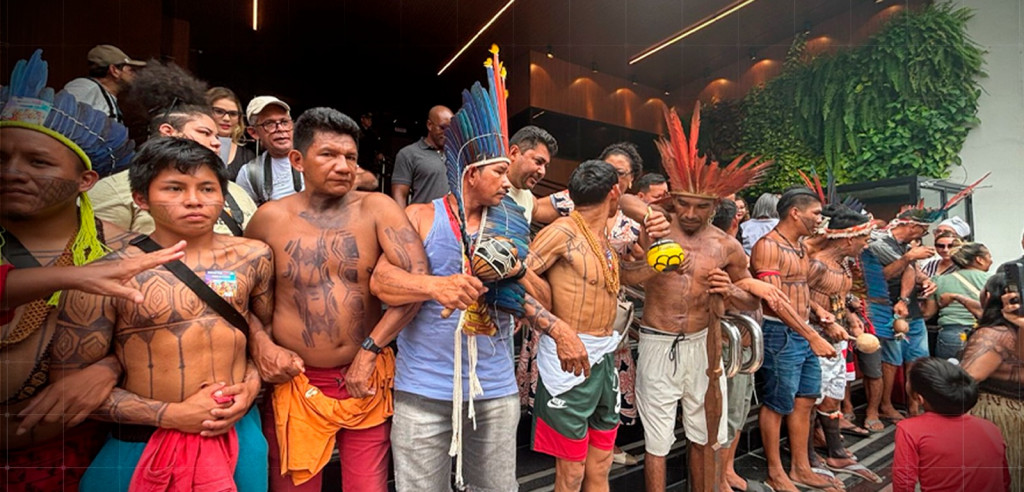Investigation may probe allegations of spying on Indigenous peoples by the Pará government
25 de August de 2025

By Fabyo Cruz – From Cenarium
BELÉM (PA) – Allegations of espionage against Indigenous peoples, legislators, and education workers by the Government of Pará prompted state deputy Lívia Duarte (PSOL), an opposition member to Governor Helder Barbalho’s (MDB) administration, to propose on Tuesday, the 19th, the creation of a Parliamentary Commission of Inquiry (CPI) in the Legislative Assembly of the State of Pará (Alepa). The aim is to investigate the alleged use of agents from the Human Rights Defenders Protection Program (PPDDH) to monitor demonstrators during the occupation of the State Secretariat of Education (Seduc) headquarters in early 2025.

According to the news outlet Jota, agents from the program were allegedly used to follow, in real time, the movements of Indigenous peoples, education workers, and social movement leaders. The monitoring reportedly took place inside buses and boats transporting demonstrators, including representatives of the Arapiun, Munduruku, and Borari peoples, traveling from inland cities to Belém on January 14.
At the time, leaders were rallying support from other movements critical of the state government and discussing protest strategies against changes made to Indigenous education under then-Secretary Rossieli Soares. The mobilization gained momentum after Governor Barbalho sanctioned Law 10.820/2024, which, according to protesters, dismantled the Indigenous education system by revoking core provisions of the teaching career and legislation that guaranteed the functioning of the Modular Teaching Organization System (Some) and its Indigenous modality (Somei).

PPDDH agents, formally linked to the program for protecting threatened defenders, acted as “collaborators” for the state intelligence service. The information collected was passed directly to Public Security Secretary Uálame Machado and used to produce at least two confidential reports detailing leaders, allies, intentions, and financing methods of the occupation. In video evidence attached to the case, delegate Carlos André Viana, head of the Intelligence and Criminal Analysis Sector (Siac), stated that the monitoring was continuous and included infiltration within the Indigenous movement itself.

CPI
The proposed CPI aims to investigate the extent of the monitoring, possible violations of constitutional rights, and the misuse of the PPDDH, seeking greater transparency regarding the surveillance of social movements and the protection of human rights defenders in the State. The expectation is that the commission will clarify the facts surrounding the Seduc occupation and set legal boundaries for intelligence services’ actions toward activists and vulnerable communities.
In a statement at Alepa, deputy Lívia Duarte described the action as a “State crime.” “I had access to reports from the Pará government’s intelligence service which, during the Seduc occupation, used the PPDDH to spy on human rights defenders. Governor Helder Barbalho must explain this authoritarian, unethical, and persecutory action,” she said. She also announced she would reinforce the request for involvement of the Federal Public Prosecutor’s Office (MPF), which is already investigating the case, including alleged use of “fake news” against Indigenous peoples.
The episode unfolds amid a backdrop of growing violence against human rights defenders in Pará. According to the report “On the Front Line – Violence against Human Rights Defenders in Brazil” by the organizations Justiça Global and Terra de Direitos, the State recorded 103 cases between 2023 and 2024, accounting for 21% of the national total.
For the deputy, the Pará government’s actions recall practices seen at the federal level under former president Jair Bolsonaro (PL), when “fake news” and surveillance by Abin were used to monitor social movements and political leaders. “We cannot allow such grotesque acts, so disrespectful to democracy, to be normalized. Pará does not belong to anyone, the people’s struggle does not belong to anyone!” stated Lívia Duarte.
What the Pará government says
CENARIUM contacted the Government of Pará for clarification regarding the espionage allegations. In response, the State Secretariat of Public Security and Social Defense of Pará (Segup) stated that the “collaborators mentioned in surveillance operations are diverse community members who are not part of the Human Rights Defenders Protection Program.”
“SIAC agents are intelligence professionals properly trained and guided by intelligence doctrine, working directly in many tasks related to public security knowledge production, such as organized crime, violent crimes against individuals, crimes against vulnerable groups, environmental crimes, and among these is included the monitoring of human rights defenders,” reads an excerpt of the note.
Translated from Portuguese by Gustô Alves

